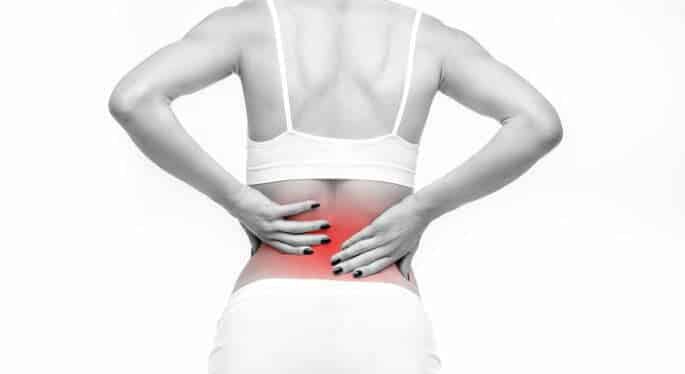Chronic Lower Back Pain
Chronic lower back pain is frequently caused by lumbar degenerative disc degeneration, which happens when a disc degrades due to either normal wear and tear or a twisting injury. This weakening produces excessive micro-movement at the corresponding spinal level, resulting in the inflammation from the exposed proteins inside the disc and local irritation, which contribute to the discomfort. Because of the name “degenerative,” some individuals wrongly believe that the condition will worsen with age; however, while disc degeneration will most likely progress, pain symptoms normally improve over time. The disc loses inflammatory proteins as it degenerates and becomes more stable, reducing pain. Although many persons over 60 may have deteriorated discs, it is unusual for them to have pain due to this condition. However, as the disc stiffens, the re-stabilization process might take several years.

Symptoms
The typical person with degenerative disc disease is in their thirties or forties and healthy and active.
Common lumbar degenerative disc disease symptoms include:
Sitting generally worsens discomfort since the lumbosacral discs are loaded three times more than while standing.
Bending, lifting, and twisting during everyday activities aggravate the pain.
Walking, as well as running, may feel better than long periods of sitting or standing.
Patients feel better switching positions regularly, and lying down is usually the ideal position because it removes pressure on the disc area.
The intensity of discomfort will typically fluctuate and may be rather intense at times (for example, for a few days or weeks) before subsiding to a more acceptable level.
In addition to pain in your lower back, leg pain, numbness, and tingling may occur. Other structures in the back can transfer pain through the buttocks and legs even when there is no pressure on the nerve root (a “pinched nerve”). Nerves can become sensitized to inflammation from proteins within the disc space, resulting in numbness/tingling. In most cases, the pain does not extend below the knee. These feelings, while concerning and irritating, rarely signal that there is ongoing nerve root injury. Any weakness in the leg muscles, on the other hand, is an indication of nerve root injury.

Diagnosis
An MRI (Magnetic Resonance Imaging) scan is the best way to find out if you have disc degeneration. However, not all degenerative discs cause pain, so simply finding the disease on the scan does not always indicate its presence. The above symptoms, along with the results of a clinical exam and an MRI scan, indicate that this ailment is causing your discomfort. Getting a discogram at a pain clinic may also be recommended. If you’re experiencing chronic lower back pain, schedule an appointment with the Pain & Spine Institute in Chicago.
